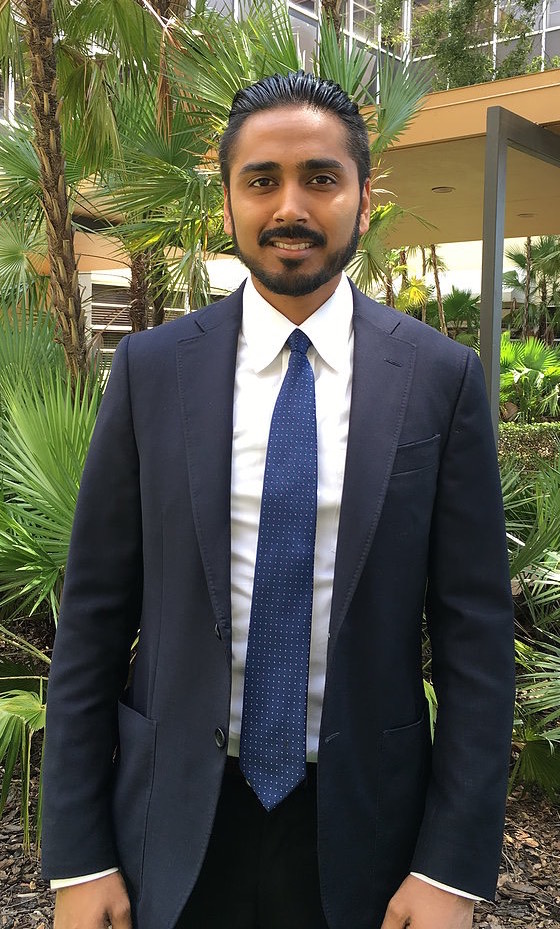 Many people know someone that has been affected by Alzheimer’s. It is a terrible disease to watch unfold in front of your eyes, and even tougher feeling as though there is nothing you can do to stop it. This disease changes the person you knew into a shell. It takes a toll on both the person affected and their family.
Many people know someone that has been affected by Alzheimer’s. It is a terrible disease to watch unfold in front of your eyes, and even tougher feeling as though there is nothing you can do to stop it. This disease changes the person you knew into a shell. It takes a toll on both the person affected and their family.
From 2014 to 2016, Dr. Faizi Ahmed told countless families that there was nothing that could be done, that their disease was going to progress, and that affairs should be put in order. In 2014, he had heard of cases that had been reversed by Dr. Dale Bredensen in California but ignored them. Dr. Ahmed was working in one of the world’s best Alzheimer’s centers at the time and was convinced it couldn’t be reversed.
In 2016, Dr. Ahmed saw another headline about Dr. Dale Bredesen and decided to look further into it. What Dr. Bredesen’s study revealed was ten people who developed Alzheimer’s dementia who, for the most part, were able to reverse their disease. His treatment, although far from traditional, seemed feasible. After having had some correspondence with Dr. Bredesen, Dr. Ahmed went to his physician’s training program at the Buck Institute for Research on Aging in California. He had no expectations going in, but quickly realized he had stumbled upon a ‘silver buckshot,’ an actual solution to Alzheimer’s dementia. The treatment is called MEND, but is also known as the Bredesen Protocol.
Most people with Alzheimer’s disease have a genetic predisposition. The vast majority of genes that cause Alzheimer’s won’t guarantee that someone will develop it. They just increase the chances of it developing. One common gene mutation, ApoE4, is present in the more than half of people with Alzheimer’s. This gene is directly involved in forming the protein amyloid-beta, which causes the brain pathology known as Alzheimer’s disease. It is the disease in what we call Alzheimer’s disease. What Dr. Bredesen and his team at the Buck Institute have found is this gene can be redirected. It can be made to form another protein, so that amyloid-beta is not formed. They found that it is possible to shift the pathway, and in turn, reverse the disease.
Dr. Ahmed has brought the Bredesen Protocol to Tampa with his clinic, Tampa Neuropsychiatry. While his main treatment is Alzheimer’s dementia, they also treat depression, anxiety, the complications of brain injuries and more.
So when is the best time to seek treatment? Dr. Ahmed suggests coming in as soon as you notice any type of memory problem. Extensive testing can determine whether or not the problem derives from Alzheimer’s. The sooner the disease is caught, the better chance there is to stop the disease and reach recovery. When the memory problem starts causing difficulty with functioning, it becomes harder to treat. Mild Alzheimer’s, in which there is mild dysfunction as a result of the memory problems, is basically the limit. Although, Dr. Bredesen’s group has found some rare success with people of moderate severity.
“There are several things that we can do on a day to day basis to ensure that our genes don’t get the best of us. For one, we need to clean up our diets. And when I say clean up I actually mean completely overhauling our diets. People who have been successful with the protocol have been able to stop eating processed foods, including bread and rice. Diets should consist of mostly vegetables, some fruit, and some meat. Another necessary component of the program is vigorous exercise about 5-6 days per week for about 45 minutes at a time. It is well known that exercise causes an increase in brain growth factors. In fact, a study of healthy older adults found that exercise resulted in a significant increase in their brain volume. This study found that brain volume increased in the hippocampus, the area of the brain that is severely affected by Alzheimer’s disease.” Dr. Ahmed explains that one significant component of the program is a major lifestyle change for the patient and the family.
It is never too early to consider preventative treatment. Dr. Ahmed encourages anyone with questions or concerns to contact him for a consultation. To learn more, you can visit his website here.





